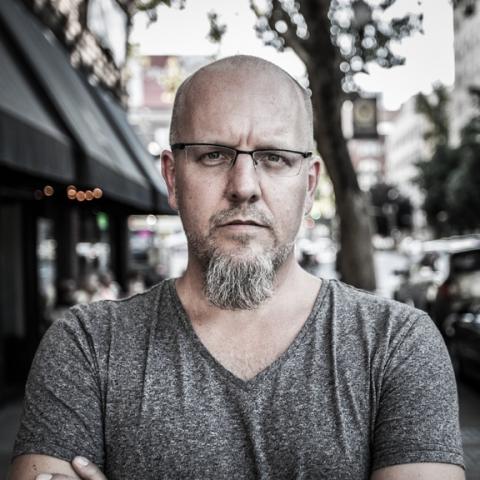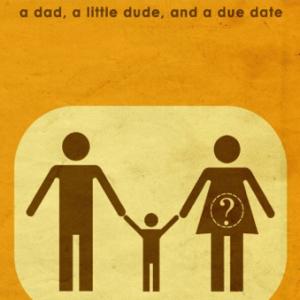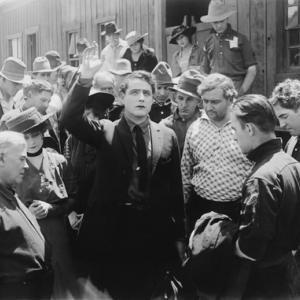
Christian Piatt is an author, blogger at Patheos and founder/cohost of the Homebrewed CultureCast podcast, where he focuses on the intersection of faith and popular culture. His latest book, “Leaving A-holiness Behind,” is available now, and his next book, “Surviving the Bible: A Devotional for the Church Year 2018,” will be available November 1, 2017.
Posts By This Author
Four More (BIG) Reasons Young Adults Quit Church
There has been a surprisingly positive response to the article I published yesterday called “Seven Reasons Why Young Adults Quit Church.” And as I noted, it was hardly a comprehensive list. There were several others I thought were worth noting if I’d had the room, so I thought I’d continue with the same theme today.
And as I said in yesterday’s article:
- Although the answer(s) vary from person to person, there are some general trends that I think apply in most cases, and;
- In the list below, when I refer to “we,” “I” or “me,” I’m referring to younger adults in general, and not necessarily myself.
Epic Fail: A Tour of Ill-Conceived Church Signage
There are plenty of websites that generate fake church signs, but thankfully there are still more than enough real examples of church messages that can evoke emotions across the spectrum. I’ve collected a few of my favorites here and thought I’d share.
I’ve passed on all of the cliche ones such as “God answers knee-mail’ and “CH _ _ CH –what’s missing? U – R!” and gone instead for the ones that have really grabbed my attention, though not necessarily in the way they were intended.
A Freudian slip, I'm sure
Seven Reasons Why Young Adults Quit Church

Photo via Dezhaviu / Shutterstock.com
From time to time I revisit the question: Why are young adults walking away from religion?
Although the answer(s) vary from person to person, there are some general trends that I think apply in most cases. (In the list below, when I refer to “we,” “I” or “me,” I’m referring to younger adults in general, and not necessarily myself.)
Gaining Respect for End-Times Prophet Harold Camping
I’m a little bit worried that the solar flare storms either are affecting my personal judgment or the rest of the world. Given the logic of Occam’s Razor, I suppose I’m screwed.
First this week, I wrote a piece about how I agreed largely with the 700 Club’s Pat Robertson about decriminalizing marijuana. And as if that wasn’t enough to send me questioning the orientation of the universe, now I find myself with a growing modicum of respect for fear-monger pastor and end-times prophet, Harold Camping.
Famous for wrongly predicting the end of the world twice – and for bringing scads of followers and their life savings along with him – Camping has become both the butt of late night talk show monologues and the object lesson for the hubris of trying to ascertain the “mind of God.”
Those who choose to get in a knot about such things already have the Mayan calendar to blame for the current frenzy about end times, which is predicted to take place according to this ancient calendar later this year. In response to those who use such predictions to grab attention and scare believers, I wrote a piece recently that places the whole Armageddon thing in perspective for me.
Basically, my son’s school told him to sleep tight, and don’t let the bed bugs bite, but also not to be surprised if he awoke to a smoldering void instead of his home planet the next day, given that the French were about to ramp up their supercollider. So of course, he wanted to know if he still had to do his homework.
I love that kid.
Pat Robertson: What A Long, Strange Trip It's Been
Even a blind squirrel finds a nut once in a while. A million monkeys typing for a million years would eventually produce Shakespeare.
And once in a blue moon, Televangelist and 700 Club head Pat Robertson and I agree on something.
When asked about his position on the decriminalization of marijuana, Robertson said the following:
“I just think it’s shocking how many of these young people wind up in prison and they get turned into hardcore criminals because they had a possession of a very small amount of controlled substance. The whole thing is crazy.”
Umm, can I get an “Amen?”
Anger is the Achilles Heel of the Republican Party
It seems lately that the Republican party is painting itself into an angry corner that it can’t find its way out of.
Rush Limbaugh’s recent loose-lipped “slut” comment is a clarion call to his significant conservative base to forge ahead in a direction that leads nowhere good. Basically, he cast negative, sexually charged aspersions at Sandra Fluke, a college student who publicly advocated for health insurance that included birth control.
As this piece in the Christian Science Monitor notes, his comments — and the greater sentiment they reflect — point to a sexual double-standard among many social conservatives. But that isn’t what is tripping up the GOP right now.
Anger is their Achilles heel.
Jesus Tortillas: Deconstruction, Preconceptions and God
Here I am, urging people to deconstruct their preconceptions about God, and this guy finds Jesus in a tortilla.
Russ, my father-in-law, lives outside of Espanola, New Mexico. He can tell you from years of living there that the area is jumping with religious mysticism. One of the most famous sites in the state is the church at Chimayo, where people visit to touch the holy dirt and be healed. There are photos of people who claim to have been restored all over the place, along with crutches and canes left behind.
I’m not one to affirm or challenge that what people experience there is real. But I did find it interesting that the priests who serve the church simply bring in new dirt to fill the hole when they get low. Perhaps they bless it; I have no idea. But it’s interesting to me the power we inhere to certain items, acts or places. Is God more or less there than somewhere else? Is there something about the experience that opens us up to the already-present God? Is it an example of the uncharted power of the human mind?
Is God Dead?
There was a movement back in the 1960s that many of us only have read about, while others vividly remember. Philosophers and theologians explored what was labeled the “Death of God” movement. Interest in the subject has re-emerged particularly as of late because William Hamilton, one of the more prominent voices in the Death of God movement, diedlast week at age 87.
The movement inspired TIME Magazine’s now-famous cover (seen here) in 1966, raising the question in the public forum: Is God Dead? The cover has since been listed by the Los Angeles Times as one of the “Ten Covers that Shook the World.”
Hamilton’s faith was shaken during his teenage years when three of his friends were making a homemade pipe bomb. The project went wrong and detonated, killing two of the three boys.
The two killed were Christians. The lone survivor, an atheist.
Hamilton’s crisis of faith centered around a theological concept known as theodicy, which explores the question: why do bad things happen to good people? More specifically, why does misfortune seem to befall the faithful, while those lacking faith enjoy what seems to be a providential hall pass?
An Excerpt from Christian Piatt's New Memoir 'PregMANcy': The Pee Stick
We're delighted to share with you an excerpt from Christian Piatt's forthcoming (April 1) memoir, PregMANcy: A Dad, a Little Dude and a Due Date:
“Screw it.”
These two words are what started the baby ball rolling in the Piatt household, back in January. After months of counseling, discernment, weepy nights and sleepless mornings, I submitted, succumbed, caved in like the roof of a Geo convertible.
I know “screw it” is an ironic choice of words, considering the circumstances. I also think it’s sadistically ironic that we men are biologically tuned to love sex so much, yet we’re usually the ones who freak out the most about the byproduct. I’m a typical male, visually aroused by anything vaguely resembling a boob or a booty. Also, working from home and sharing responsibility with my wife for the daily development of our four-year-old son, Mattias, makes me somewhat abnormal. And it’s this shared responsibility, I think, that makes having another kid such a big deal for me.
The Heart of All Anxiety: Fear of Loss
I got emails from my mom and uncle about Nana, my last living grandparent. The news isn’t great. She’s struggled with dementia for some years now and hasn’t recognized me the last several times I’ve seen her. But while her mind has been betraying her for a while, it’s her health now that seems to hang in the balance.
Not that it’s a surprise at ninety years old. And it’s also not like we’re particularly close anymore. Aside from living 700 milers away, it’s hard to have much of a relationship with someone who has no idea who you are. But there’s something about knowing she’s close to the end of her life that really freaked me out last night.
When I was a little guy, I had three great grandparents that I remember visiting. They all smelled funny and talked constantly about stuff I didn’t understand, but I got that they were family. I’d visit Pappy and Sweetie, who lived in a trailer home on the Mississippi River; Granny Hagen had her own house for a few years, and then she got moved into one of those silos where people wait to die. Yes, there are some retirement facilities that actually have signs of life in them, but this wasn’t one of them. My mom’s family was pretty poor, and things like retirement and end-of-life planning weren’t a particularly high priority.
Their deaths didn’t bother me too much. I didn’t like seeing my parents sad, but that was about it. I’d miss the candy corns and balloons Pappy always gave me (he called candy corns “duck butters” because when he’d feed them to the ducks, their butts would stick up in the air when they reached down to eat them). But my grandparents were the ones I actually knew as people.
Christopher Hitchens, Diana Butler Bass and the Third Great Awakening
Everyone who calls me to speak somewhere, it seems, wants me to address the issue of declining church membership, and particularly how to connect with younger adults. The problem is that sometimes the invitation is built on a false premise. It’s the hope of many churches that if they can find a way to connect with younger people in a relevant way, those young adults will join the church and save the institution for future generations.
And while this is possible in some situations, it’s really the wrong question to be asking.
The explicit question I get asked, time and again, is “How do we better serve younger people?” And if the question really ended there, we could have a pretty productive conversation. But there’s an implied subtext in most cases that we have to tease out, and often times, the church isn’t even willing to admit that this footnote is married to their question. So although the words above are what are spoken, here’s what they really want to know:
“How do we better serve younger people (so that they will come back to our institutions and save them)?”
If It's Armageddon, Do I Have to Do My Homework?
The world has never been short on doomsday prophets, intent on predicting the end of days. And it has reached fetishist proportions this year with the end of the Mayan calendar.
See, that’s why I never buy paper calendars. They always end, and I don’t want to be the one responsible for Armageddon.
But the Mayans and their Johnny-come-lately adherents aren’t the only ones. Harold Camping has predicted the end a few times, most of which haven’t worked out so well. But each time he adds a little footnote as to why he was a little off, but that the next prediction REALLY is the big one, so be ready.
I’m not entirely sure why we’re so obsessed with trying to know when everything will come to a grinding halt. Christians in particular have been warned by Jesus himself not to occupy our hearts and minds with such things. So how come we can’t seem to stop trying to figure it out?
Piper's Tweets About Gays: Dude, Where Is the Love?
It’s bad enough when Christians sit silently by while LGBTQ folks are marginalized, ridiculed, abused, raped or even killed for who they are.
It’s another when Christians actively engage in the exclusion of people based on their identity or orientation.
And then there’s John Piper.
It seems Piper has a Twitter problem. Maybe he doesn’t see it as such, because with fewer than 140 characters, he can stir up quite a storm of controversy. But considering the damage that can be done with so few words, I think it is a significant problem.
Stolen Valor and Government's Moral Authority

Gold scales image via Shutterstock (http://www.shutterstock.com/pic-49314697/stock-photo-gold-scales-and-auc...)
But what about when the government itself asks us to lie, or at least to not fully disclose the truth? Consider the “Don’t Ask, Don’t Tell” policy, which the military had in place for many years. What if a soldier argued that not knowing the person serving next to them was actually gay caused them irreparable psychological or emotional harm? Not that I think such a case holds any water, but I’m using this to make a point; once you allow the government to have legal authority over personal speech, it’s a difficult box to close back up once it’s open.
I think it’s a particularly compelling question given the debates about placing the Ten Commandments in public buildings. Yes, there are many parallels between those biblical laws and the laws enforced by the government. However, they are not the same in all cases. And the distinction is important not only with regard to the separation of the powers of church and state, but also in maintaining the sovereignty of the individual in the face of a powerful government.
Jeremy Lin and the 'Messiah Formula'
No, he doesn't go down on one knee every time he nails a dunk or a perimeter shot. And as far as I know, he’s not building any hospitals in far-off countries. But the 23-year-old point guard for the New York Knicks suddenly finds himself in a spotlight familiar enough to Tebow that the pair should consider a face-to-face lunch to compare notes.
Like Tim Tebow, Jeremy Lin “rode the pine” as a bench-warmer for years. Unlike the star quarterback, Lin was cut by two other NBA teams before landing a supporting role on the Knicks bench.
So why do we know about him all of a sudden? Although Knicks coach Mike D’Antoni would love to claim credit, he admits the only reason the American-born player of Taiwanese parents got his shot was because so many players ahead of him were injured.
Then, as if storing up his energy for months in anticipation of his big break, Lin lit up scoreboards, followed by sports talk shows and endorsement deals. Eleven days ago, he was a relative nobody. But it seems all it takes is leading your team to a six-game winning streak, posting 38 points against Kobe Bryant and snagging a buzzer-beater three-pointer against the Raptors to get the public’s attention.
So long Tebowmania; enter “Linsanity.”
Something in the Blood

Red blood cells. Image via Wylio, http://bit.ly/ysvxWb.
Usually when I hear people talk about finding the good in the midst of a difficult situation, my cynical radar goes up. I picture the scene in Monty Python’s Life of Brian where Brian and the two thieves are being crucified while whistling and singing “Always look on the bright side of life.”
Yeah, right.
I reminds me a girl named Cathy that I knew in high school who already lived on her own before she had even graduated. At school she was the perpetual ray of sunshine, always offering warm smiles and hugs, but hardly concealing a deeper undercurrent of sadness that you could nearly taste.
But once in a while, we have an opportunity to catch a glimpse of grace in the middle of the worst humanity has to offer. And it’s in those moments that I tend to recognize God in our midst.
The Grammys: Something Old, Something New, Something… Meh
Before anything else, I have to give serious props to Jennifer Hudson for doing her acapella tribute to Whitney Houston, whose death at age 48 cast a noticeable pall over the otherwise celebratory evening. With a photo of the recently deceased pop legend hanging over her and millions watching, Hudson pushed back her emotions to deliver a rendition of Dolly Parton’s “I Will Always Love You” that few could pull off in any situation, let alone one with that kind of pressure. She proved herself a true professional and a peer worthy of comparison to other superstar divas like Houston.
Beyond that stand-out moment, the Grammys offered what seemed to be a house divided in the music world, some of which was reassuring, and some of which simply made me feel old and out of touch.
Examining John Piper's "Masculine Christianity"

John Piper at his church in 2008. Image via Wiki Commons, http://bit.ly/wCFqsL.
I really want to give people like John Piper the benefit of the doubt. Given that he’s a minister in the Baptist tradition, it doesn’t surprise me when he only refers to God as “he” or when he talks about the man’s role as spiritual head of the household. I grew up Baptist, so I’ve heard it all before.
But he goes too far with it. Way too far. And given the breadth of his influence, his message serves to normalize the marginalization of half (slightly more than, in fact) the world’s population. While I expect he believes he is fulfilling a divine call in sharing his message, I believe I’m serving a similar call in holding him to account.
Piper, recently keynoted a conference called “God, Manhood and Ministry: Building Men for the Body of Christ.” On first blush, this sound both exciting and very necessary. Men are leaving organized religion in droves, and in many cases, they are walking away from their families as well. I agree wholeheartedly that today’s man needs some clarity, support and guidance in how to exhibit Christ-like traits of strength, conviction, love and dedication both in the home and in communities of faith.
None of this, however, requires the relegation of women to a second-tier role, which is precisely what Piper seems to be doing.
'Dexter Theology': Shedding Blood in God's Name

"Dexter" image via Wylio http://www.wylio.com/credits/Flickr/3484952865.
I’ll admit I’m a sucker for stories about the malleability of human morality. From the mob movies, where a guy can whack his cousin but better not show his Patron any “disrespect,” to justice-seeking serial killers like “Dexter,” there’s plenty of justified violence to be found.
Where do such seemingly contradictory value systems come from? And do they actually happen in the real world today?
How about the politician who claims a platform that values a respect for “all life,” while justifying war and advocating for capital punishment? Or those who celebrate the death of Osama Bin Laden and Saddam Hussein? And the list goes on.
It’s common in western culture to objectify the Islamic faith, cherry-picking texts from their scripture and plucking choice sound-bytes from extremist leaders, to portray the whole of the religion as inherently violent. This, in turn, is employed to justify violence in-kind, or worse, preemptive violence, as in the case of our invasion of Iraq.
I call this “Dexter” theology.
Christian Piatt answers, "What is an Evangelical?"
The “E Word” in Christianity is a funny thing.
In one respect, Evangelicals are self-identified, and therefore, self-defined. On the other, popular culture (particularly media) lays its own meaning on what it means to be Evangelical. In the latter context, the word inevitably translates to “Conservative Christian.”
But I think this definition isn’t fair. What’s more, it’s not accurate.
I’m a self-proclaimed “word nerd,” so I tend to turn to etymology for help. The root meaning of “evangelical,” at least as a paraphrase, means “to tell the good news.”
Sufficiently vague, right? Depends on who you ask.












